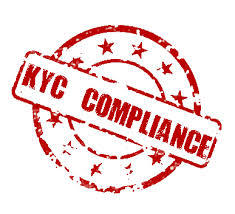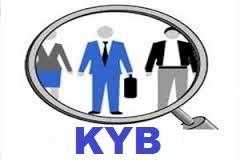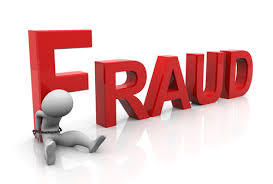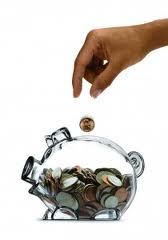In the brokerage industry it is the responsibility of the broker to know his customers by requesting information from the customer to verify identity to prevent identity theft, financial fraud, money laundering and terrorist financing. This is often coined as Know Your Customer (KYC) policy and has been part of the financial industry compliance checks since as early as 2001 in certain countries and as early as 2002 in the USA after the USA Patriot Act. Since then, brokerage firms were required to make KYC part of their compliance procedures. Despite that, firms were still vulnerable to Money laundering and financial fraud even with above and beyond procedures of KYC in the later years. With the advent of the internet, advancement in telecommunication and Globalization people are no longer restricted by distance to communicate and exchange information. They can conduct meetings online via video conferences and exchanges data via emails and telephone. And so many business relationships are initiated over the internet without either parties ever having to travel and physically meeting. And even if you did take that trip to physically meet your new associate in his country and his state before doing business you are still at risk even after one or two meetings.
And so I will jump into the purpose of this blog and issue a warning to traders against doing business with unregulated firms and unregistered individuals. Just as brokers are required to know their customers, clients should be required to know their brokers. The regulatory bodies require the registered brokers and regulated firms to disclose their business and outside business activities to them. And this information is public knowledge available from the regulator’s websites as broker’s checks on FINRA.org and SEC.gov. It is the Individual trader’s responsibility to not rely only on what is published on the counter party’s website, social media and marketing materials as adequate due diligence. They should go above and beyond by doing further verification check before doing business with any counter party. If the firm or the individuals operate outside the US, please note that ALL regulatory body including those who regulates Foreign Financial Firms (FFI) maintain a list of their registered members and this information is almost always published on their websites. If you can’t find the registration for the firm, contact the regulatory body by telephone or email and inquiry into the firm’s status. You can also checked if the FFI is FATCA compliant in which they must report the earnings of US persons who maintains account over $50,000 outside the US. Traders should not rely on whether they see the firm’s logo listed on someone else website as “Certified Partners” or see the firm have listed on their website a known brand and or reference to a reputable firm to assume and conclude that the counter party is in good standing and safe to do business with by nature of association.
The reality is that unless you have a personal relationship with this person with whom you have brunch with every Sunday, you still don’t know who you are dealing with and you should not be giving them your life’s savings. You are taking a great risk in trusting a virtual stranger. Companies face similar challenges when hiring new employees. Even though they do background checks and references there is still that small percentage of hiring someone who may have committed or was involved in a fraud. And like most fraud it goes undetected because the proper body was not asked the right questions. And therefore you should only rely on the guidance of those tasked with the role to police the industry and not 3rd parties who may also be part of the fraud or ignorant to the other party’s business practices in which case the latter is in the same boat as you. Duped and conned.
You should look out for the tell-tale signs and clues that something is not right with the firm you are trading at. It is quite easy to be taken in by a firm who knows how to masquerade as being legitimate. Some such firms even boost in being transparent. Let’s be clear what being transparent actually means. Below is a list of procedures that a regulated and registered firm does in order to be transparent.
- Has Audited annual financials and is often made available to the public.
- Does Monthly or quarterly financial reporting.
- Maintains Anti-money laundering (AML) policies
- Has a Chief compliance and Financial officers
- Hires Licensed personnel
- Has a Minimum net capital requirement to operate
- Has Fiduciary responsibility
- Is Fidelity bonded or is SIPC insured
- Has Record keeping requirement
- Has a Physical office location
In addition here are some clues which should trigger red-flags to you to investigate a firm further:
Non-regulated Firms
- No reference to registration and often does not list a physical address.
- Offers up to 20-1 leverage with an open invitation to join them. Does not require registration to join.
- Open invitation to trade their capital without any formal experience in the market or background checks.
- No lock-up period on your money.
- Uses obscure buzz words and terms to legitimize themselves such as being both Proprietary firm and Hedge Fund.
Regulated Firms
- Both Retail brokers and Regulated Proprietary (PROP) firms usually list their regulatory body on their website.
- Retail firms only offer a maximum leverage of 4-1 on individual accounts and 6-1 on account approved for Portfolio Margins. Otherwise Only registered and regulated PROP firms can offer higher leverage. And registered PROP firms require that their traders to be registered and employed by them in order to trade the firm’s capital.
- Retail firms require you to open an account and fund it before you are allowed to trade. Registered PROP firm will require a full background check on you before giving you access to an account to trade in.
- A Regulated PROP firm normally to lock up your capital contribution for at least one year.
With the technological enhancement made in search engines such as optimization and social media integration, almost all information can be harvested and stockpiled on just about anyone or entity. The technology was invented to improve our lives and to be used for the purpose it was intended for. Although, it is sometimes used for sinister purpose in which I have mentioned before in being used to pretend legitimacy, you need to always keep in mind that not everything you read online is the Truthful fact. That being said you should use the internet to conduct search for certain clues and use what you do know as facts to cross-reference. You may have to be a bit of a social stalker and investigate the entity and its control people so that you can gather as much information you can before consenting to do business with them. Keep your ear out for any tidbit of news or rumor that something is not right. Another method is to try to learn from other traders’ mistakes and horror stories by checking message boards where traders post reviews on companies and services they have used. Chances are someone might have posted a review or a warning about a certain website or person to avoid. If you get a smidgen of something, follow up a step further and email that person asking for additional information on that tip.
If language is a barrier, please note there are free online tools which can assist you in translating websites. One such tool is Google Translate. The bottom line it is your responsibility to know your “broker.” You have no valid excuse to cry fault when you are guilty of not doing your own due diligence before you sent all your life’s saving to someone you met on the internet. And finally the biggest telltale sign that a firm is not legitimate is that they will always make some outlandish claim on incredible returns. If it just sounds too good of an opportunity for you to pass up, you probably should.






